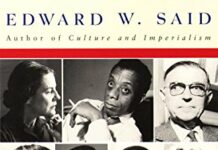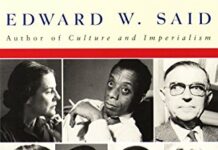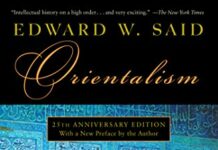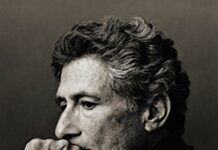
Ebook Info
- Published: 2012
- Number of pages: 338 pages
- Format: EPUB
- File Size: 3.00 MB
- Authors: Edward W. Said
Description
From one of the most important intellectuals of our time comes an extraordinary story of exile and a celebration of an irrecoverable past. A fatal medical diagnosis in 1991 convinced Edward Said that he should leave a record of where he was born and spent his childhood, and so with this memoir he rediscovers the lost Arab world of his early years in Palestine, Lebanon, and Egypt. Said writes with great passion and wit about his family and his friends from his birthplace in Jerusalem, schools in Cairo, and summers in the mountains above Beirut, to boarding school and college in the United States, revealing an unimaginable world of rich, colorful characters and exotic eastern landscapes. Underscoring all is the confusion of identity the young Said experienced as he came to terms with the dissonance of being an American citizen, a Christian and a Palestinian, and, ultimately, an outsider. Richly detailed, moving, often profound, Out of Place depicts a young man’s coming of age and the genesis of a great modern thinker.
User’s Reviews
Reviews from Amazon users which were colected at the time this book was published on the website:
⭐I am not being sarcastic in saying that Edward Said was a towering intellectual. He was also a brilliant speaker – I heard him speak at a synagogue (yes, that’s right) in Armonk, NY, many years ago, and he was phenomenally articulate and empathetic.So it is very disappointing to say that this memoir is a 300-page whine. Said grew up in a very affluent home in Cairo and spent his summers in the mountains of Lebanon. He was very well traveled, well educated, and hung out in very intellectual circles around the world. Yes, his parents were mercurial – his father was a dominating man; he was a very successful business man who called the shots in his family. His mother was a very loving woman but very manipulative, withholding approval and arguably pushing Said away and then clutching to him when it suited her needs. In other words, his parents were typical of their times. I could say the same thing about mine, despite the fact that I grew up in a home on Long Island 10 years later. But he can’t seem to get over it. I cannot say that I’ve completely gotten over it, but if I were to write a memoir it would certainly not focus on the travails of my childhood and early adolescence.It’s particularly disappointing that Said wrote this memoir well after being diagnosed with what he knew was a fatal disease. Given all his accomplishments and his passion for the Palestinian cause, why did he choose to focus his memoir on the first 20 years of his life and to be so obsessed with the challenges he faced, which in fact were far less traumatic than what so many others endure? He may have viewed his cup as half-empty, but was the half that remained so bad?Beyond that, I found the book very difficult to follow. He jumps from one time period to another with no transition, so that you find yourself reading about something totally different and wondering what you missed. The abundance of relatives and friends who pass through his life is also confusing, and he keeps referring to people that we can’t remember because the last time he mentioned them was in passing dozens or hundreds of pages before. Perhaps an index would have helped.All in all, this was a very disappointing book, particularly given the brilliance that he might have brought to bear on what was, at a minimum, a very interesting life.
⭐- and that is not an assessment of ‘Jews’, pro or con.What you will never ever hear your Pastor tell you, is that the ‘Ishmaelites’ of the ME get along just fine with Christians. Your local Muslim neighbor in the ME would more likely have a chip on his shoulder about which person should have rightly followed the Prophet in succession after his death, than anything you do as a non-Muslim.Same thing happens within the Mormon community, and countless other examples.
⭐This is a remarkable work of a truly fascinating man. Much of the memoir is dedicated to Edward Said’s relationship with his mother and father. Said recounts the history of his father, a Palestinian, who went to America and possibly fought for it in the First World War. The father Wadie, later returned to Palestine and then moved on to Cairo to establish a great business success. The father comes across very typical Middle Eastern conservative authority figure with a rather peculiar but very strong American patriotism.Said’s mother, comes across as a truly fascinating woman; a Palestinian Lebanese Christian, who possessed a great passion for music, literature and original thought. In the tradition of the Middle Eastern mothers she had a large presence in the lives of her children. She was an original woman, who felt comfortable amongst the many different cultures of the middle east, yet held on to her views, which at times were at odds with her environment.Said tells of the huge influence his mother had over him during her life and even after her death. The story of the mother’s search for a passport, a nationality, her dislike of life in America, her eventual death in America are beautifully told by Said. The mother’s early conversion to Nasser’s cause is mentioned, it even alienated the mother from her Lebanese family, but Said never tells us where it led.I loved Said’s self analysis relating his behavior to his mother: “…I seem to have absorbed her worries, her tireless concern for details, her inability ever to be calm, her way of constantly interrupting herself, preventing a continuous flow of attention or concentration on anything.” Said is capable of very vivid language indeed.The school life of Said in Cairo is fascinating. He attended English Colonial schools, American and Egyptian schools in Cairo and eventually moved on to Massachusetts, Princeton and Harvard. Much of his pre college school life was problematic, at times there is too much dwelling and self-pity but it is largely interesting. On a week trip, with his mother, that for some not clearly explained reason left him indifferent to Egyptian Monuments, he says ” ….I was relieved of the pressure and the continual anxiety of not getting anything right.”The “out of place” theme is repeated throughout the book, at times very eloquently told, ” …the habit of always being dressed differently from the natives, any natives.” I do however find it remarkable that Said does not also seem to see how well he did apparently fit everywhere outside of his early Colonial school. In fact, from his stories at the American School in Cairo, Princeton, Harvard and mostly Victoria College in Cairo, you often see a fairly popular kid with many friends.I laughed out loud at the part describing his episode of revisiting Victoria College in 1989. He bribed his way in to show his family his old classroom, and later got thrown out by a woman wearing an “Islamic-style dress”. Said proceeds to describe Victoria College in 89 as a “privileged Islamic sanctuary” that expelled him twice. The fact that the first time he got expelled was due to punching a kid and sending him to the hospital for a week and the second through trespassing both by his own admission does not seem to matter, in both cases, to him it was discrimination. Victoria College is a million miles away from being an Egyptian Islamic sanctuary, with a mixed high school. Said’s self pity and righteousness is a times reminiscent of the Maggie Thatcher memoir, well no, not 10% as bad but it does detract a bit from the book.There is one thing I hated about the book. Where is part two? Edward Said gives you so much detail about his early pre political life. I read this book, because I often find myself at odds with Edward Said’s political views, I wanted to know more about the man. I thoroughly enjoyed “Out of Place” but it has not satisfied my desire to understand his viewpoint. I often thought that he simply fails to understand Egyptians and Egyptian attitudes but had no idea how much time he actually lived there.This is a great book, very enjoyable and full of reflection. I gave it 4 stars only because as much as I loved it I could not bring myself to give it an identical rating to Leila Ahmed’s Border Passage.
⭐I had never read Said and fell in love with him, and this book. His insights into the world of The Other — a world I’ve inhabited basically forever — are brilliant and poignant. Half-way through the book, I learned Said had died, which made me very sad, since I’d wanted to write to him.
⭐This is best read as a companion piece to Naipul’s Arrival, as it covers some of the same emotional and intellectual ground. An excellent addition to the growing field (thanks to globalization) of life in between cultures.
⭐This is the second book I’ve read by this author and I really liked this one a lot.
⭐I very much connected with this book where Edward Said is narrating with great sincerity his feelings and interactions with the details influenced him and his upbringing as an Arab, Christian from rich family yet of Palestinian origin. Said reflects on his family chosen solitude and his own struggle to define himself across different worlds. The complexity of his relationship with his both parents,how he perceived them and how they placed their heavy expectations on his shoulders . The most touching parts for me where Said expresses intelligently the sorrow of losing a country the palace to come back to and how he transfers the sorrow in to creativity maintaining uncertainty and the capacity to question.
⭐Edward Said is one of the most influential and important academics of the 20th century and his work continues to be used by students all over the world. His background as a Palestinian growing up in Egypt strongly influenced his work and in this memoir he explores some of the reasons why.I would recommend this product to any person who is interested in the Middle East and the conflict there, but also any history student, especially those who are looking at relations between the ‘East’ and the ‘West’.
⭐The best autobiography I have ever read. After grappling with paradoxes of love and hate, hot and cold, warmth and hostility, home and exile, in his childhood and young adulthood, he finally, near his own death, concludes that he ultimately appreciates being ‘out of place’ and sceptical, his life made of complex currents and threads, ever changing.
⭐Edward Said as I’d not known him a I’d read only his academic study Orientalism. An important book, well written, sad as its witten during his last years knowing he was dying, and deals with some difficult family relationships affecting the sensitive only boy in the family.
⭐beautifully writtencan highly recommendsuch a great man and such a brave life.i really loved this book and can recommend it
⭐Great product, as described
Keywords
Free Download Out of Place: A Memoir in EPUB format
Out of Place: A Memoir EPUB Free Download
Download Out of Place: A Memoir 2012 EPUB Free
Out of Place: A Memoir 2012 EPUB Free Download
Download Out of Place: A Memoir EPUB
Free Download Ebook Out of Place: A Memoir



